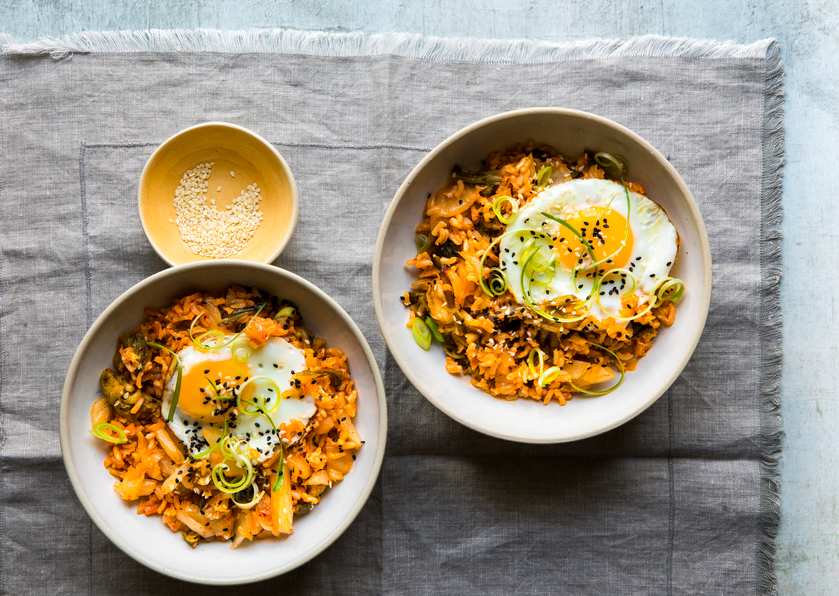Chilly weather and an abundance of seasonal foods high in vital nutrients to support our immune systems are hallmarks of winter. It’s important to include healthful winter foods in our meals to strengthen our bodies against seasonal diseases when the temperature drops. We’ll go over the importance of immunity, present WellHealthOrganic.com, and examine the variety of winter foods that strengthen our bodies’ defenses in this guide.

Winter Foods to Boost Immunity: A Guide from WellHealthOrganic.com
Our body uses immunity as a barrier against illnesses and dangerous germs. In addition to shielding us against regular colds and the flu, a strong immune system is essential for avoiding more severe diseases. We can boost our immune systems and preserve our general well-being by eating a diet high in nutrients and leading healthy lives.
Describes WellHealthOrganic.com in brief
One of the top websites for holistic health and wellness promotion is WellHealthOrganic.com. They provide a large selection of vitamins, superfoods, and health-conscious resources, with an emphasis on natural and organic items, to support people on their road towards well-being.
Examining Foods for Winter That Boost Immunity
Fruits of the Citrus
Oranges, lemons, and grapefruits are examples of citrus fruits that are rich in vitamin C, a powerful antioxidant that boosts immunity. Including citrus in your diet may help protect you against colds and the flu in the winter.
green leafy vegetables
Iron, folate, and vitamins A, C, and K are found in abundance in leafy greens like kale, spinach, and Swiss chard. These nutrient-dense greens promote general health and immune system function.
Root Foods
Root vegetables high in fiber and antioxidants include sweet potatoes, carrots, and beets. Root vegetables are a tasty complement to winter meals and have even more nutritious value when they are roasted or stewed.
Seeds and Nuts
Nuts and seeds provide vital protein, fatty acids, and minerals that help maintain a healthy immune system. Include nutrient-dense foods like almonds, walnuts, chia seeds, and flaxseeds in your winter diet.
Onions and Garlic
Garlic and onions have sulfur-containing chemicals, which provide them with antibacterial and immune-boosting qualities. These flavor-boosting additions to sauces, stir-fries, and soups may boost immunity as well as taste.
Including Winter Vegetables in Your Diet
Aim to include a range of seasonal fruits, vegetables, nuts, and seeds in your daily meals to enjoy the health advantages of winter foods. Try a variety of recipes and cooking techniques to ensure that your meals are tasty and nourishing all year long.
Recipes and Suggestions for Dinner
Citrus and Almond Salad with Spinach
Ingredients: Olive oil, lemon juice, honey, chopped almonds, spinach, mixed citrus segments, salt, and pepper.
Instructions: Combine citrus segments and spinach in a dish. Add a drizzle of honey, lemon juice, and olive oil. Add salt, pepper, and chopped almonds on top. Present cold.
Root Vegetable Medley, Roasted
Ingredients: Olive oil, salt, pepper, rosemary, garlic powder, and a variety of root veggies (sweet potatoes, carrots, and parsnips).
Instructions: Dice root veggies into even chunks. Add salt, pepper, garlic powder, and rosemary and toss. Roast until soft and browned, about 1 hour.
Lemon-Garlic Chicken Soup
Chicken breast, lemon juice, thyme, salt, pepper, onion, carrots, and celery are among the ingredients.
Instructions: In a saucepan, sauté the celery, carrots, onion, and garlic. Add the lemon juice, thyme, chicken broth, salt, and pepper. Simmer the veggies until they are soft. When the chicken is fully heated, add the cooked breast and simmer.
Advice on Increasing Nutrition Consumption
When feasible, use organic vegetables to reduce pesticide exposure and increase nutritional richness.
To guarantee a wide range of nutrients, use a diversity of colors in your meals.
When choosing snacks and meals, choose whole foods over processed ones to optimize nutrient intake and promote general health.
Lifestyle Selections that Boost Immunity
Make sure you get enough restorative sleep so that your body can heal and regenerate.
Drink plenty of water and herbal teas to stay hydrated throughout the day.
Regular physical exercise may boost immunity and lower stress levels.
Dispelling Common Myths About Immunity
Myth: Taking vitamin C may help avoid becoming sick. Although vitamin C may help the immune system, colds may not always be avoided with it.
Myth: The flu may be effectively treated with antibiotics. Antibiotics have little effect on viral infections such as the flu; they are primarily effective against bacterial infections.
Conclusion
Including winter foods in your diet is a tasty and practical method to strengthen your immune system and maintain your health during the chilly months. You may boost your immunity and have a healthy winter by eating more nutrient-dense foods, leading a healthy lifestyle, and dispelling popular misunderstandings about immunity.
FAQs
Can the minerals present in winter meals be replaced by supplements?
Even while they have some advantages, supplements shouldn’t take the place of complete meals in your diet. Numerous minerals and phytochemicals included in whole meals are critical for good health.
Are fresh and frozen produce and fruits equally nutrient-dense?
To retain their nutrients, frozen fruits and vegetables are often selected at their ripest and flash-frozen. Frozen vegetables may sometimes have an equivalent nutritional value to their fresh counterparts, making them a practical choice in the wintertime.
How can I feed my meals that strengthen the immune system of my finicky eater?
Consider hiding immune-boosting nutrients in smoothies or soups, or adding them into well-known recipes. Nutritious meals may also be presented creatively to appeal to finicky eaters.
Are there any foods that I should stay away from in the winter?
While there aren’t any particular foods to stay away from in the winter, it’s still a good idea to cut down on processed meals and sugary snacks since they may compromise immunity and lead to disease.
How important is hydration for a healthy immune system?
Drinking enough water is crucial for a healthy immune system. Toxin removal, nutrition delivery to cells, and general physiological support are all facilitated by water and are essential for a robust immune system.
